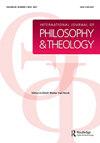直觉:哲学和神学的潜在救生筏?
IF 0.3
0 PHILOSOPHY
International Journal of Philosophy and Theology
Pub Date : 2022-10-20
DOI:10.1080/21692327.2022.2145341
引用次数: 0
摘要
由于对哲学和神学等学科的认识论局限性的假设,经验主义转向已经产生了一种关于学科相关性的审查暗流。本文试图认识到,由于依赖经验主义作为其认识论的主要形式而被称赞为最相关的学科,在研究过程中往往依赖于直觉来做出决定。在以人类学研究为例描述了这一过程之后,我在康德和几位神学家的著作中对直觉如何被理解和用作一种认识手段的描述与直觉如何被依赖并必然在更传统的以经验为基础的人类学学科中作为一种批判认识论的描述之间进行了类比。通过对直觉作为一种认识论的使用的进一步考察,这种平行是作为这些学科之间联系的出发点,并希望将哲学和神学等承认直觉使用的学科的认识论完整性与那些依赖直觉但可能不公开承认其使用的经验主义学科等同起来。本文章由计算机程序翻译,如有差异,请以英文原文为准。
Intuition: A potential life-raft for Philosophy and Theology?
ABSTRACT The empirical turn has created an undercurrent of scrutiny regarding the relevance of disciplines such as philosophy and theology due to assumptions about the limitations of their epistemology. This article seeks to recognize that disciplines that are lauded as most relevant due to their reliance on empiricism as their main form of epistemology often rely upon intuition for making decisions in the research process. After delineating this process using Anthropological research as an example, I draw a parallel between descriptions of how intuition can be understood and used as a means of knowing in the work of Kant and several theologians with descriptions of how intuition is relied upon and necessarily emerges as a critical epistemology in the more traditionally empirically grounded discipline Anthropology. This parallel is offered as the launching place for connections between these disciplines through further examination of the use of intuition as an epistemology and hopes to equate the epistemo- logical integrity of disciplines such as philosophy and theology that admit to the use of intuition with those that are considered empiri- cal which rely upon intuition yet may not admit to its use overtly.
求助全文
通过发布文献求助,成功后即可免费获取论文全文。
去求助
来源期刊

International Journal of Philosophy and Theology
PHILOSOPHY-
CiteScore
0.30
自引率
0.00%
发文量
12
期刊介绍:
International Journal of Philosophy and Theology publishes scholarly articles and reviews that concern the intersection between philosophy and theology. It aims to stimulate the creative discussion between various traditions, for example the analytical and the continental traditions. Articles should exhibit high-level scholarship but should be readable for those coming from other philosophical traditions. Fields of interest are: philosophy, especially philosophy of religion, metaphysics, and philosophical ethics, and systematic theology, for example fundamental theology, dogmatic and moral theology. Contributions focusing on the history of these disciplines are also welcome, especially when they are relevant to contemporary discussions.
 求助内容:
求助内容: 应助结果提醒方式:
应助结果提醒方式:


